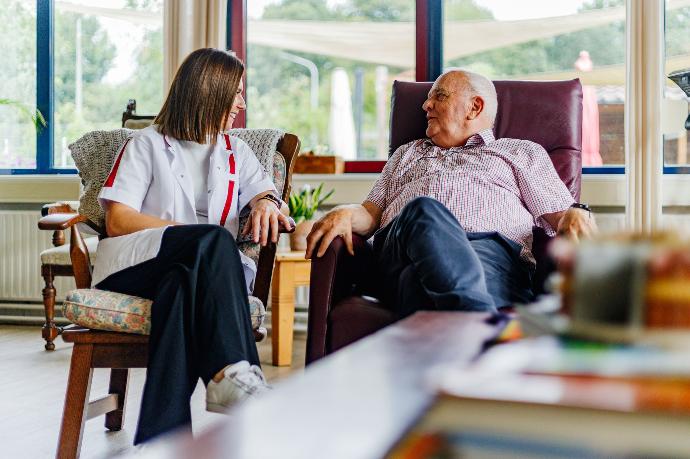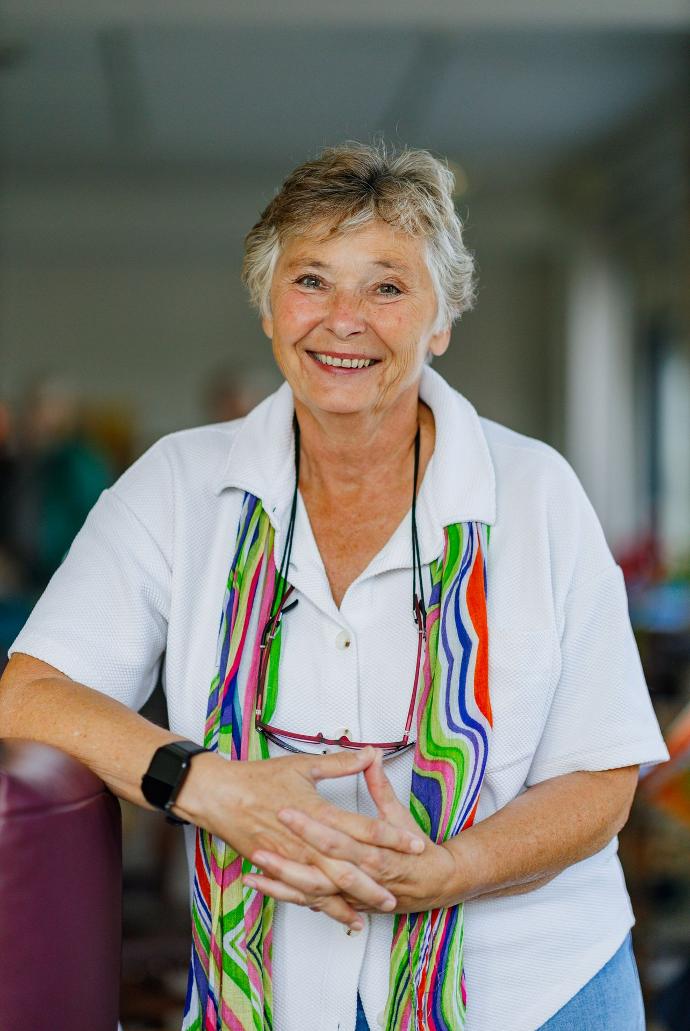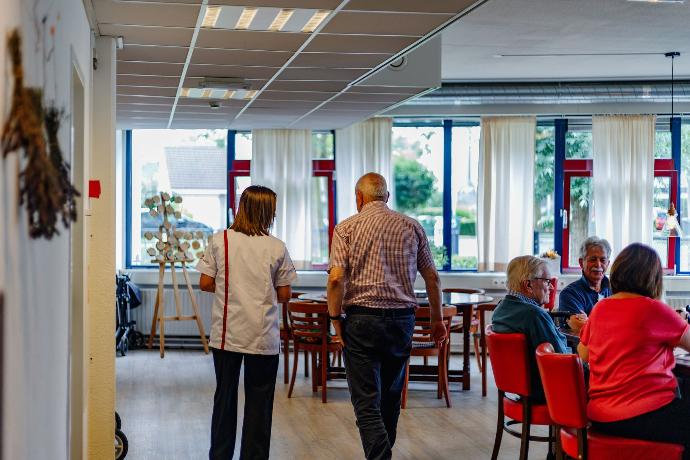"I had only just moved here and my knees gave way, and I couldn't get up off the floor," said Dianne, a resident in a residential care home. Dianne is no exception and falls are common among the elderly.
How Nobi provides solutions to the problems caused by long lies
According to some reports, one in two residents of residential care homes worldwide fall once a year on average. However, it's usually not the fall itself that has the biggest impact, but rather the long wait for help. So-called 'long lies' are situations in which, after a fall, an elderly person is unable to get back up without help and remains on the floor for more than an hour before help arrives.
Long lies can have particularly serious consequences, both physically and mentally. In fact, a long lie of more than 1 hour nearly doubles a person's mortality rate. A rapid response after a fall is therefore a matter of life and death in many cases. So it's high time we took a closer look at this phenomenon with specialists and experts by experience.

Antoinette Gorter
 Eleni Galanomati
Eleni Galanomati
Antoinette Gorter and Eleni Galanomati coordinate the district nursing operation in the Dutch region of Groot-Brabant. They have extensive experience in nursing the elderly and know the effect of long lies very well from their daily work.
Antoinette stresses the importance of increasing awareness about long lies: "There is clearly too little research on this subject. Nobi can certainly capitalise on that. As nurses, more figures and insights about this matter would help us tremendously."
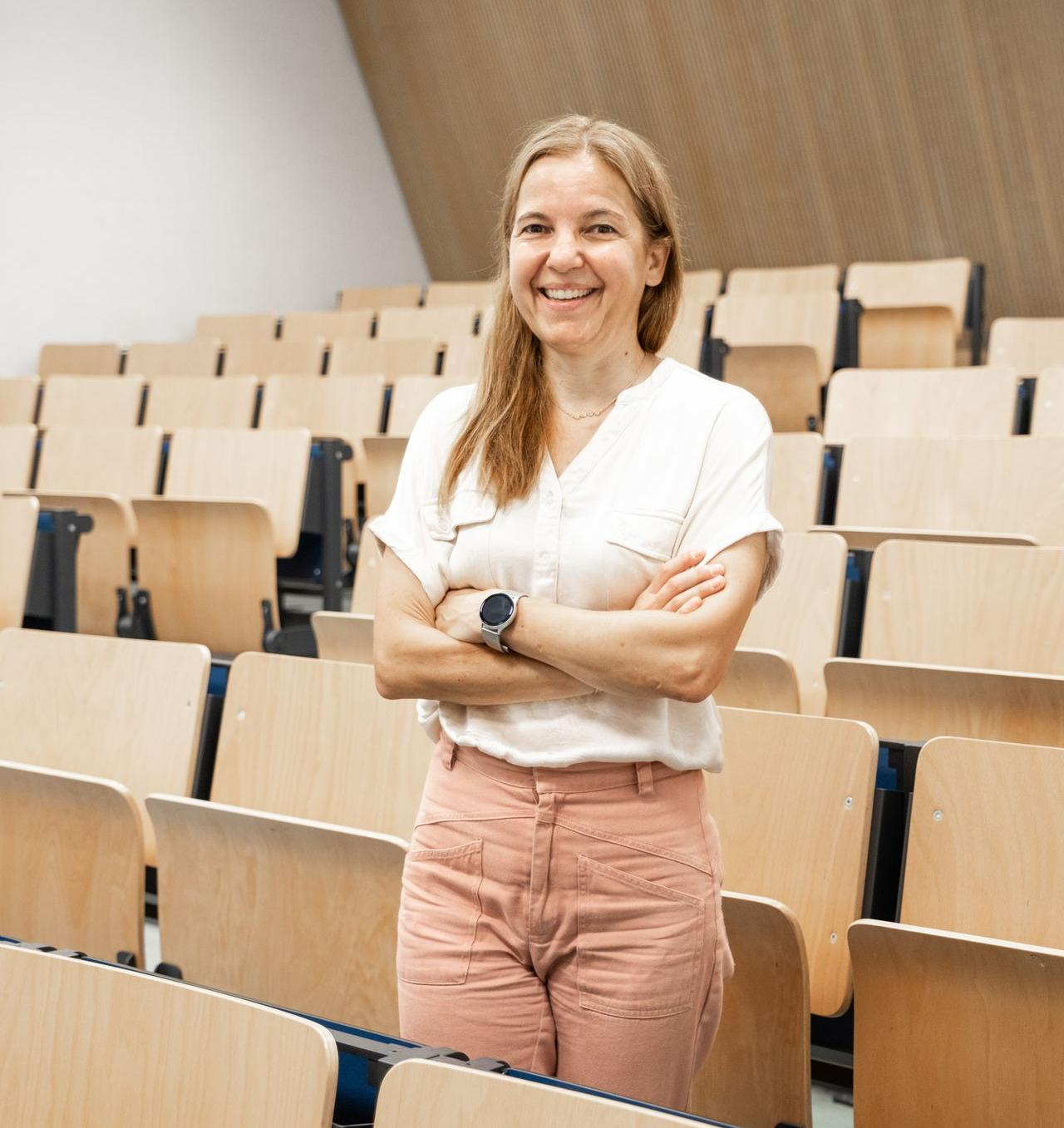
Greet Leysens
Greet Leysens worked at the Flanders Expertise Centre for Fall and Fracture Prevention for many years.
She is a lecturer in nursing practice at the Educative Master in Health Sciences at KU Leuven university and also trains nurses at the Thomas More college for higher education. Nobi Smart Lights believes they are a crucial source of future data on fall detection and long lies: "Studies on this topic are sparse and often fairly dated."
Charting more knowledge about long lies
Why is it, in fact, that so little is known about such a crucial issue as long lies?
Greet:
"The literature reveals that it is difficult to map knowledge on this topic in a structured way. For example, the duration of a long lie: elderly people who are surveyed after a long lie usually do not know exactly how long they were on the floor after a fall."
Eleni: "After a long lie, an elderly person often goes into delirium. They then have hallucinations and give incoherent answers to the questions we ask."
What we have learnt in the meantime is that residents of residential care homes are more likely to fall.
Greet: "In residential care homes, you already have a screened population who by definition have an increased risk of falling. For example, the risk of a fall increases by up to 70% in people with dementia."
Antoinette: "Some elderly people continue to live at home for a long time, but this significantly increases the risk of a long lie after a fall. Without any supervision, the chances of being helped at home soon after a fall are much lower. In this respect, Nobi smart lights can provide much more peace of mind for everyone and also save lives."
Greet: "Fall prevention is often targeted at people over 65. However, not everyone in that group has an increased risk of falling yet. For this reason, screening in elderly people living at home is important to distinguish between those at low versus a higher risk of falling. This allows more targeted preventive action."
There are no studies available showing who is prone to an increased risk of long lies.
Greet: "A number of older studies do mention some risk factors that predict an elderly person's inability to get up independently after a fall. For example, the risk increases significantly from the age of 80. Reduced mobility and activity in daily life also increase this risk. Furthermore, the medical history of patients – especially osteoarthritis or depression – is also a determining factor."
Serious physical and psychological consequences
A fall may only last a second, however, the consequences reverberate for a very long time, both for the elderly and for their families and carers.
"Available studies show that the consequences of a long lie after a fall can be very serious. The consequences are in the first place injuries and fractures but also dehydration, hypothermia, infections and skin damage, etc. In addition, the mortality rate almost doubles."
Eleni: "The visible injuries are taken care of immediately. But some severe injuries are not noticed until much later. A week after the fall, for example, it turns out that the resident has a fracture that was not treated in time. This can have major consequences."
Besides all the physical consequences, a fall or long lie also has a serious psychological impact. Self-esteem drops significantly.
Antoinette: "Elderly people who have already fallen once are afraid of experiencing it again. They are confronted with their vulnerability, which in turn leads to anxiety, less mobility and a tendency to withdraw."
Greet: "In addition to a more healthy fear of falling – which urges a certain degree of caution – there is also a variant that significantly interferes with the enjoyment of life. One in two elderly people living at home experience fear of falling. These figures even increase to 8 in 10 if the elderly person has already experienced a fall. The fear of not being found is particularly high, which in turn significantly reduces the quality of life."
Nobi maakt korte metten met lange ligtijden

after a long lie due to a fall, severe physical and mental symptoms occur
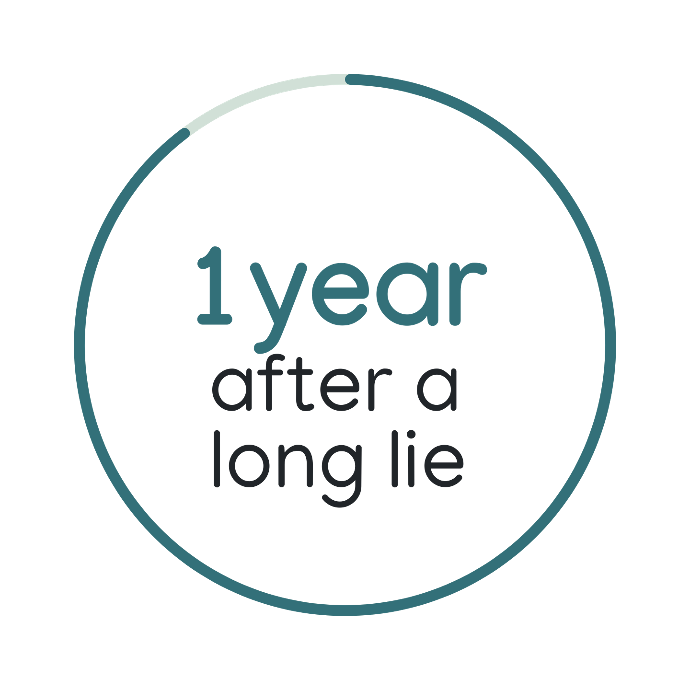
there is still an increased risk of hospitalization or death
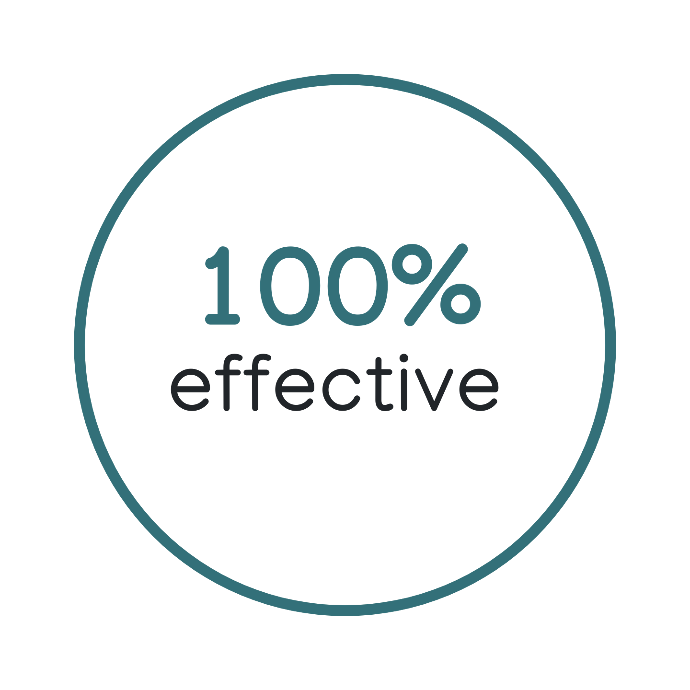
of falls are noticed thanks to Nobi's smart lights

after the fall, caregivers are already providing assistance thanks to Nobi
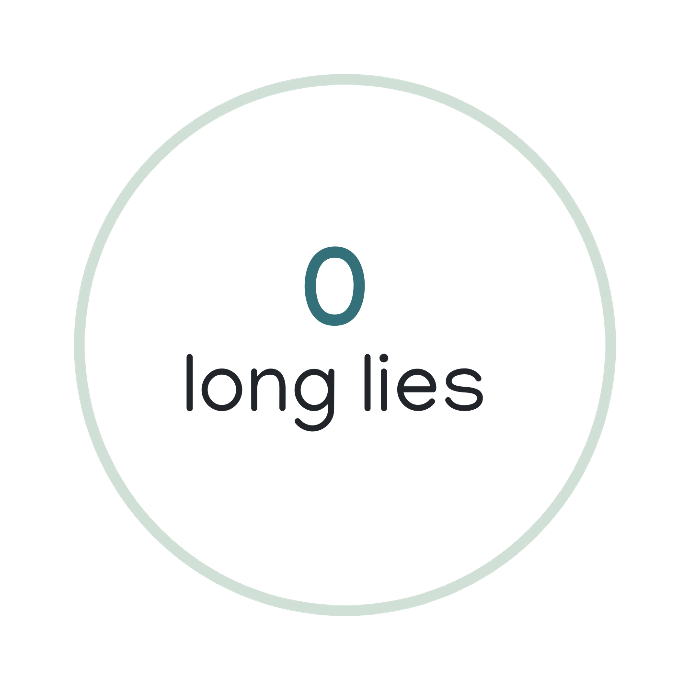
thanks to Nobi's smart lights
Super-fast response, less human and financial impact
Nobi provides a structural solution to the problem of long lies.
Greet: "In residential care homes, Nobi ensures that residents receive assistance from their carers much faster. In purely numerical terms, the number of long lies will be reduced to zero thanks to Nobi.”
Many authorities are facing the challenge of counteracting the rising costs caused by long lies.
Antoinette: "The government wants to keep elderly people at home as long as possible, due to the shortage of accommodation in residential care homes. To do this in a sustainable way, we must continue to focus on providing an ultra-fast response after a fall and, of course, avoiding falls. Indeed, rehabilitation after a long lie is very costly and labour-intensive."
"Preventing falls or providing a quick response after a fall will benefit society as a whole," Antoinette continues, "and the technologies that make this possible already exist today: just think of Nobi's smart lights. They ensure that every fall will be seen, so care workers – but also family, acquaintances or neighbours – can immediately rush to the rescue. The time has come for these solutions to be given every opportunity."
Greet stressed the need for fall prevention and a commitment to ultra-fast help after a fall, in order to reduce the impact of long lies on people and society: "Of course, the physical and psychological effects on elderly people remain the priority, but reducing the number of long lies also curbs the costs significantly. Indeed, fewer long lies mitigates the costs involved in treating serious complications."
The results
- Increased peace of mind for residents, care staff and relatives
- Less fear of falling, resulting in positive mental effects
- Lower costs due to long lies, both for residents, residential care homes and society as a whole
Commitment to quality of life
Eleni: "The solutions offered by Nobi Smart Lights, both at home and in residential care centres, would significantly ease the work of us nurses. We are very enthusiastic about these solutions."
"In the end, it's all about quality of life," concludes Greet, "We all want our elderly to live their life with dignity and positivity. Prevention and responding rapidly to long lies is essential for this."
Resident Dianne's story had a happy ending: "Suddenly I heard a voice, 'Madam, have you fallen?' When I confirmed that this was the case, they immediately came to help me. Luckily nothing was wrong with me. That light makes me feel safe." This is how Nobi Smart Lights actively contribute to the fight against long lies – today and in the future.
Want to know more? Get in touch here.
